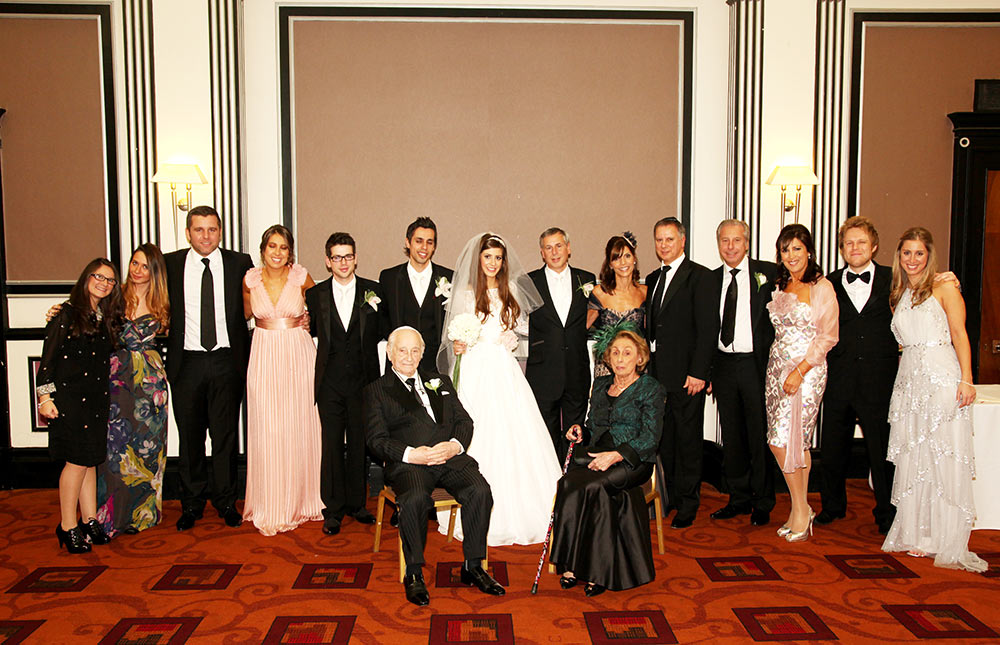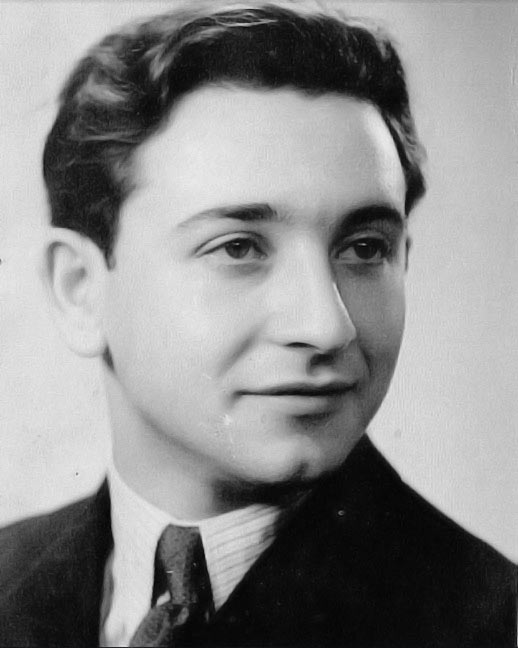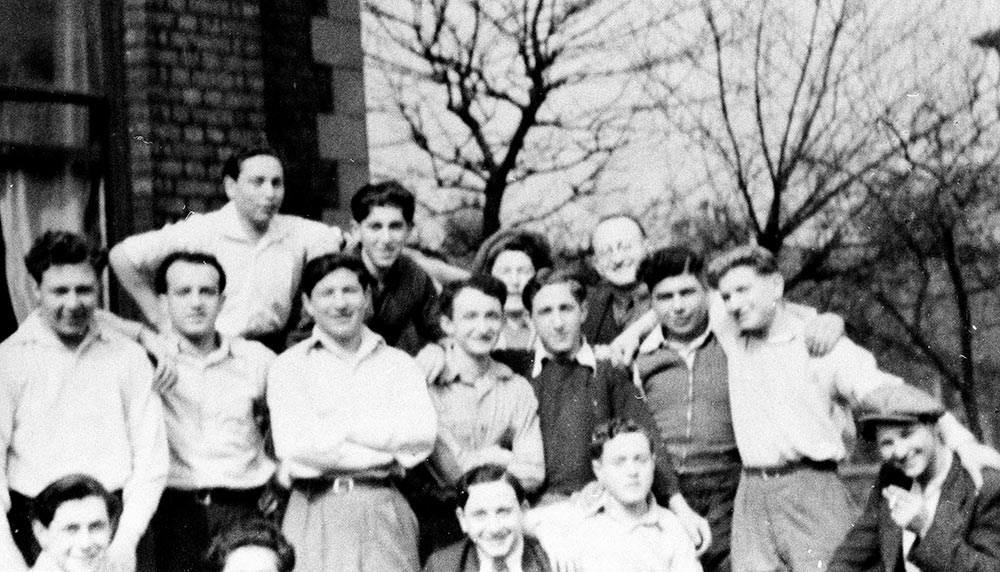Swipe to read
Chaim describes his feeling on arrival at Auschwitz.
Read Transcript
“In September, we were sent to Auschwitz … for some reason I think they liquidated this camp because I heard at a later date that while I was sent to Auschwitz, my uncle was sent to Gross Rosen, to another camp. And I actually heard that he died there in Gross Rosen … The journey was about a day or two in cattle trucks … they just give you a slice of bread and a drink and that’s it … on arrival the memory, we arrived in Auschwitz in the middle of the night. We were in cattle trucks, cramped and then all of a sudden, doors slide open, and you see a huge place. Enormous. As far as the eye can carry you, you see bulbs, lights, fences lit up. And camps and barracks. And the place is dead silent. Just absolutely silent. You couldn’t hear anything move. Dead quiet. Then all of a sudden, as the doors open, there is the SS with dogs and quite a few machine guns shouting ‘raus, raus, raus, get out’. There was also a carbolic smell … and you see flames. You look round, four huge flames … You didn’t realise that these were the crematorium.”
Chaim describes how he continued to practise Jewish traditions whilst in the labour camps.
Read Transcript
“There were some who kept up the religion. For some reason they had managed to get tallit and tefillin through. And they were davening [praying] every day. There were some who were davening everyday … they weren’t allowed but somehow, they managed. They managed. There were always angles you could get away. They managed to do it. There were quite a few of them who managed to daven every day, pray every day … In every one of the camps …
Were you aware of the Jewish Yom Tovim?
Oh yes, we were aware. We usually, in every camp we tried to organise to say some prayers. In every camp somehow there was somebody who knew exactly what the day was. Yes. And rumour got around that we were davening, were doing this and that there, at that time. There were prayers going on but we didn’t have any books. There was somebody who knew the prayer by heart …
Did you yourself take part?
Yes, yes yes … In particular Rosh Hashanah, Yom Kippur … You did it when you came home. After work when you came home.”
Chaim describes relationships with others within the camps.
Read Transcript
“In previous camps I did meet a cousin of mine. It was Michael Bornstein, a cousin of mine. It was in Gräditz. I think it was. And also, I met a brother-in-law of mine, Yankel Szpiegler. They were labouring. It was really tough. They were labouring outside digging in concrete and what-do-you-call. And they didn’t look well. Their faces were all swollen. I could hardly recognise them. From hunger … and they really had it tough … They did not survive … For some reason, while we were in the camp, although we were cousins, or brother-in-law. You were not as close as here. For some reason. I don’t know what was the cause. Everybody is trying to fight for survival. Everybody was hungry. Of course, you see them every day, and you say hello but that’s it … everyone was preoccupied. Trying to find that little extra food.
Typhus broke out and the whole camp was closed up. They were dying about 200 or 300 a day. There were a few who were immune in the camp because once they had it before they were immune … There was no medication. There were one or two inmates who were doctors, but they didn’t have anything … I also had typhus. I caught it and I must have been knocked out for about two or three weeks. With typhus you get a very high temperature. Because of this high temperature you are just knocked out … Like a skeleton I was, and I just didn’t have the strength to get myself up. When I was knocked out. It must have been the other people, who were immune. They must have fed me something. With water or something or I wouldn’t have survived.”
Chaim describes the impact the holocaust had on his physical and mental health.
Read Transcript
“Not physically, not physically but mentally. I should imagine so.
Do you suffer from nightmares?
The odd time yes. You get depressions and, you can see, I cry quite easily. As one gets older, I find it become more hurtful. As one gets older.
What about your religious life? Did it have an effect on that?
Yes, it did. For a number of years, I was rather, bitter about it, I was. But erm, this is the way of things. And as one gets older, one begins to accept it and one starts to believe again.
When did it start to come back?
In the last 10/12 years. I hadn’t done anything, apart from Rosh Hashanah and Yom Kippur I hadn’t bothered. Rosh Hashanah and Yom Kippur you did it because, you do it. For the children and other things you do it … Inside the house was always kosher because of my wife. But outside the house I ate non-kosher food … I have changed now. I have become more religious, and I don’t eat treif, outside or anywhere … I keep Shabbos and Yom Tov and I go regular to shul now, which I didn’t use to … Maybe as the children got older, I thought, I have got to give them something more, because life is empty without anything … I didn’t think they should grow up without anything.
Did you ever talk to them about your experiences?
No … They knew it was upsetting so there were things that they wouldn’t ask me. A little bit more in the last year or two, we have talked about certain incidences. Only the last year or two … it is important but it’s very difficult to speak about it.”


